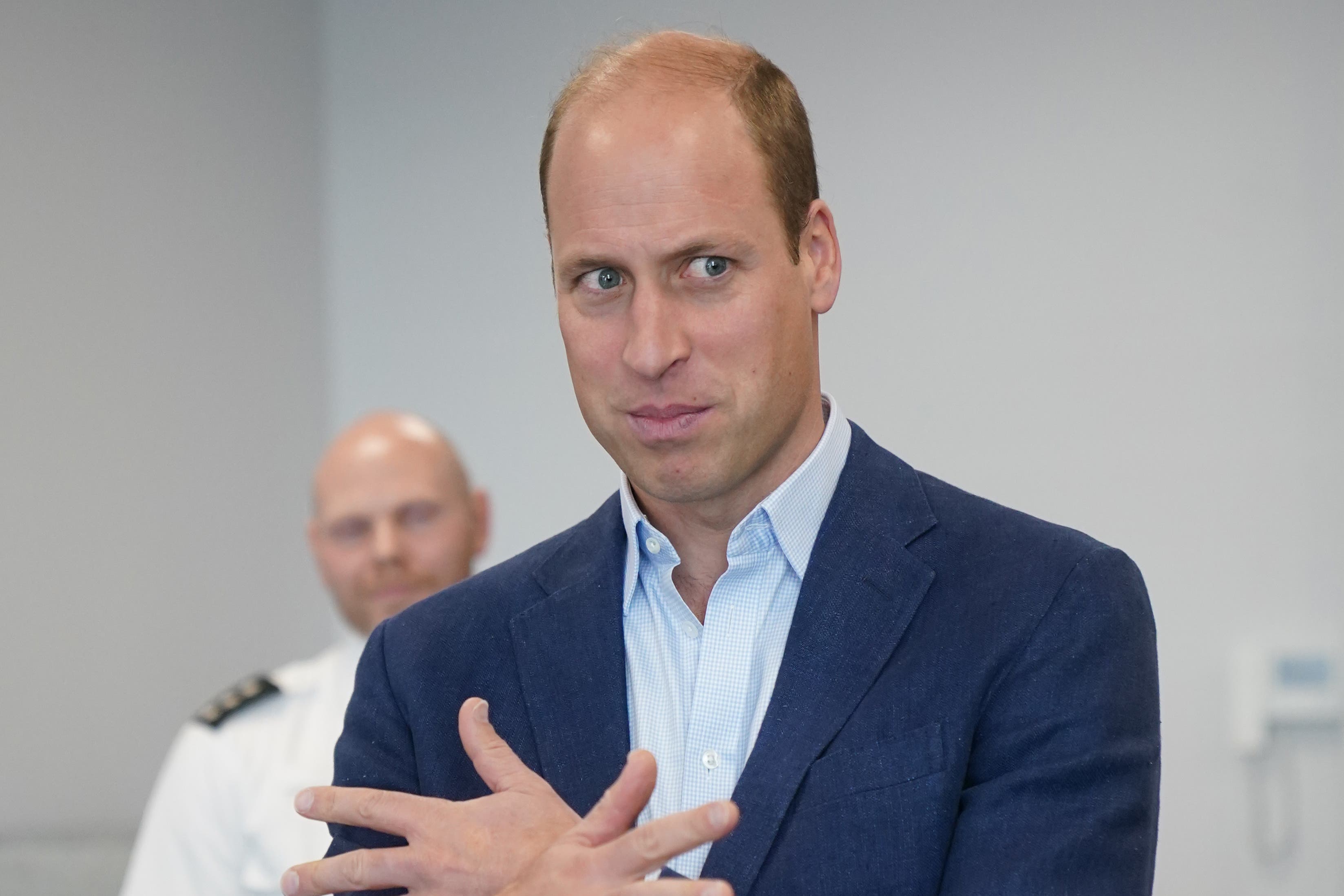Prince of Wales says retirement like ‘cliff fall’ as trauma caught up with him
William said he ‘misses’ his time as an air ambulance pilot between 2015 and 2017, but ‘worries about people retiring’ from emergency service roles.

The Prince of Wales has said retiring from his job as a pilot was a “cliff fall” which left him feeling “quite lonely” as the traumatic aspects of the job caught up with him.
Speaking to emergency responders on Wednesday, William said he had an “armour up” when working for East Anglian Air Ambulance, and only realised the reality of his experiences after he had left.
During a visit to the Blue Light Hub in Milton Keynes, the prince said his time as an air ambulance pilot was much more hands-on with patients than when he was with the RAF, something which had a lasting impact on his mental health.
William said he “misses” his time in the role between 2015 and 2017, but worries about people retiring from traumatic jobs.
Speaking about his former role, he said: “I was holding everything and doing it all.
“There were a few times I had an armour up. I took it home with me and it went from there.”
He said he did not appreciate the “cliff fall” of stepping down until it actually happened.
“Life catches up with you” after you have left, he said. “That can feel quite lonely and isolating.
“At the time I didn’t notice it happen. Afterwards, you realise it’s not normal.
“I do worry about people retiring. We have to be better at managing long-term health.”
His comments came during a visit to the Blue Light Hub, the operational base of South Central Ambulance Service, Thames Valley Police and Buckinghamshire Fire and Rescue Service – one of the first purpose-built combined fire, police and ambulance premises in the country.
Collaboration between the three services was at the forefront of the design which encourages fire, police and ambulance colleagues to work together at every opportunity to ensure they are supporting each other and providing the best possible service to the community.
Representatives from the hub told William that shared spaces in the facility allow staff from different services to talk to each other about their mental health concerns.
The prince was shown around the different call centres, vehicle garages, and the canteen in the building, where he spoke to staff about the challenges of their roles.
William – whose visit comes during the week of World Mental Health Day – asked responders if they are being given enough mental health support.
“How are we doing looking after you guys?” he asked one group of police officers, adding: “It’s key for me that you guys are looked after.”
Former broadcaster, journalist and psychologist Dr Sian Williams, who now works for the NHS at the Centre for Anxiety, Stress and Trauma, led a discussion between the prince and emergency responders about mental health in the workplace.
During the discussion, police officer Willker Da Silva Melo told the prince there is an expectation that officers should be “tough” and “don’t cry”.
He continued: “Management here are much more aware (about mental health issues). The support is there.”
Fellow officer Safiya Rudder said her job can be challenging because police officers are not always “seen as people” or in a “positive light”.
Search and rescue responder Mags Kelly told William her role can be particularly traumatic, especially if a missing person cannot be found.
She said she and her colleagues make sure they go and “do something together after every shout” so they can talk about what they experienced.
Speaking after the prince’s visit, Dr Williams said working as an emergency responder is a “hard world when you’re running towards danger”, and that dealing with trauma can be difficult.
She told the PA news agency: “What do you do with that stuff when you get home?
“What if you don’t feel you can share it with your family?”
Knowing when mental health challenges are coming up is “what the prince was talking about,” she said.
“The prince said ‘We’re on your side’, that’s what people heard today.”
Bookmark popover
Removed from bookmarks